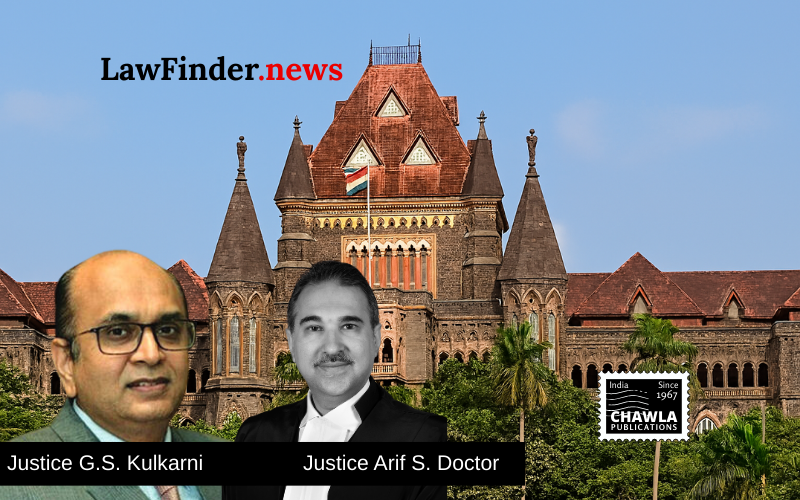Court highlights gross lapses in urban planning and sewage infrastructure, mandates formation of Improvement Committee for sustainable development and protection of environment and citizen rights.
In a landmark judgment dated 19 September 2025, a Division Bench of the Bombay High Court comprising Justices G.S. Kulkarni and Arif S. Doctor addressed serious environmental and urban planning issues plaguing the rapidly developing Kulgaon-Badlapur Municipal Council (KBMC) area in Thane District, Maharashtra. The case was initiated by agriculturist Yashwant Anna Bhoir who filed a writ petition against the State of Maharashtra, KBMC, and the developer A Plus Lifespaces (now Trishul Golden Ville CHS), alleging that untreated sewage from a high-rise residential complex was overflowing onto his adjoining agricultural land, rendering it uncultivable and polluting the Ulhas river.
The Court’s detailed analysis revealed that despite the high density of the residential building accommodating over 440 occupants, the KBMC had failed to provide adequate municipal sewer lines or a functional sewage treatment plant (STP). Instead, the developer installed a grossly insufficient septic tank which overflowed sewage onto the petitioner’s land and into open drains leading to the Ulhas river, violating environmental laws and fundamental rights guaranteed under Articles 14, 21, and 300A of the Constitution.
Expert reports commissioned by the Court confirmed contamination of the petitioner’s land and highlighted the absence of a comprehensive sewage system, poor quality of soak pits, and non-compliance with environmental clearance requirements for constructions exceeding 20,000 square meters. The Collector of Thane’s on-site inspection corroborated these findings and underscored that the untreated sewage discharge breached the Water (Prevention and Control of Pollution) Act, Environment Protection Act, and Maharashtra Pollution Control Board norms.
The Court emphasized the critical importance of adhering to urban planning standards, including the necessity of sewerage infrastructure before granting building permissions or occupation certificates. It observed that the KBMC’s laxity and the developer’s failure have resulted in a public nuisance affecting thousands of residents, farmers, and the environment.
Invoking the polluter pays principle established by the Supreme Court in landmark decisions such as M.C. Mehta v. Union of India and Vellore Citizens’ Welfare Forum v. Union of India, the High Court ordered the developer to pay Rs.10 lakh as compensation to the petitioner for the damage caused. It also directed the developer to immediately take remedial steps to prevent further sewage discharge onto the petitioner’s land.
Recognizing the systemic nature of the problem, the Court mandated the formation of an “Improvement Committee for Kulgaon-Badlapur Municipal Area” consisting of experts from CIDCO, Directorate of Town Planning, Maharashtra Pollution Control Board, the Collector of Thane, KBMC officials, and social workers. This Committee is tasked with preparing a blueprint for immediate and long-term measures to overhaul urban planning, sewage infrastructure, and environmental safeguards, aiming to transform Kulgaon-Badlapur into a model town comparable to well-planned cities like Navi Mumbai.
The Court also imposed a cost of Rs.50,000 on the KBMC to be paid to the petitioner, underscoring the authority’s failure in civic responsibilities. It warned that ongoing neglect of essential civic amenities such as sewer lines and sewage treatment plants would not be tolerated, as these directly impact citizens’ fundamental rights to a clean, pollution-free environment and health.
This judgment sends a strong message to municipal authorities and developers that urban development must be accompanied by scientific town planning and environmental compliance. It reaffirms constitutional mandates and environmental laws protecting citizens’ rights and the ecosystem, calling for urgent corrective action to prevent further public health hazards and ecological degradation in the Kulgaon-Badlapur area.
Bottom Line:
Absence of adequate sewerage system and overflowing septic tanks in high-rise residential projects cause serious environmental pollution and public nuisance by contaminating adjoining agricultural lands and water bodies, violating constitutional rights under Articles 14, 21, and 300-A.
Statutory provision(s): Maharashtra Municipal Councils Nagar Panchayats and Industrial Townships Act, 1965 (Sections 2, 190, 191, 193, 200-204, 208-212), Water (Prevention and Control of Pollution) Act, 1974 (Sections 24, 25, 26, 33-A, 43, 44, 45-A, 45-D, 45-E), Environment Protection Act, 1986 (Sections 3, 4, 5), Constitution of India (Articles 14, 21, 47, 48A, 51A), Polluter Pays Principle as interpreted in Supreme Court decisions (M.C. Mehta v. Union of India, Vellore Citizens’ Welfare Forum v. Union of India, Indian Council for Enviro-Legal Action v. Union of India, M.C. Mehta v. Kamal Nath)
Yashwant Anna Bhoir v. State of Maharashtra, (Bombay)(DB) : Law Finder Doc Id # 2781455




